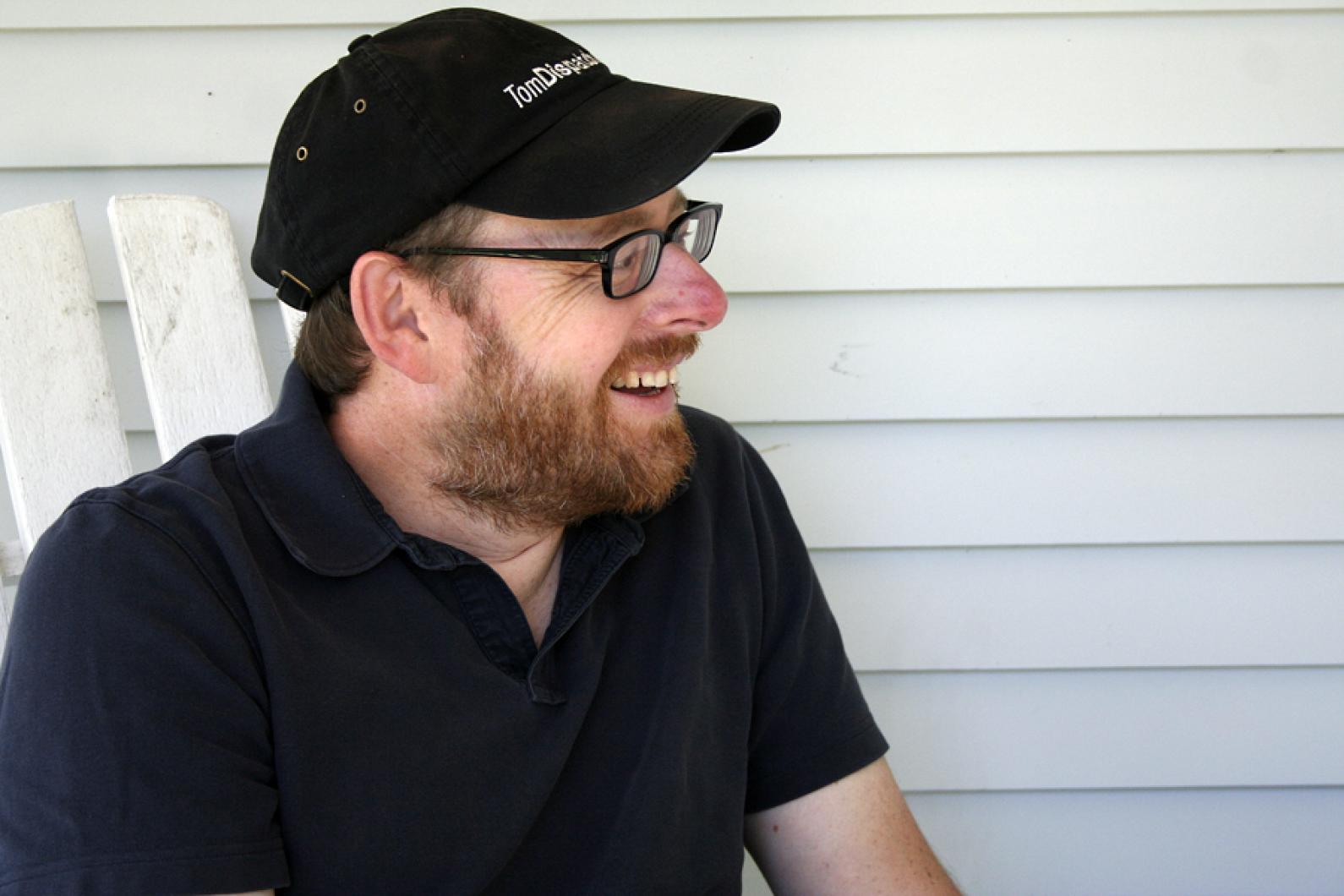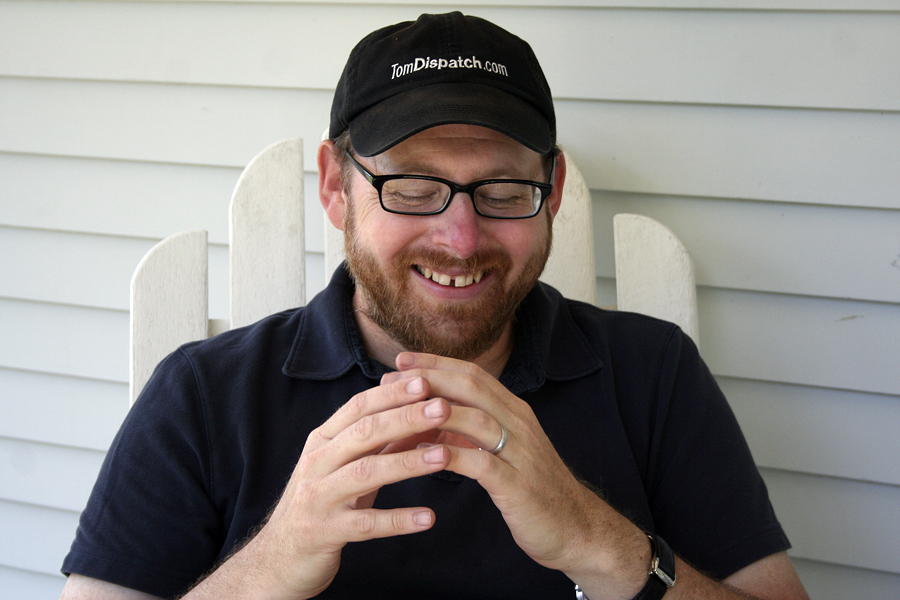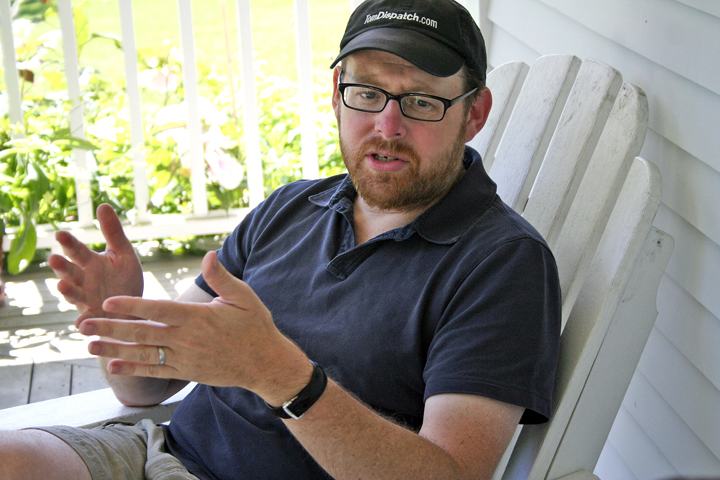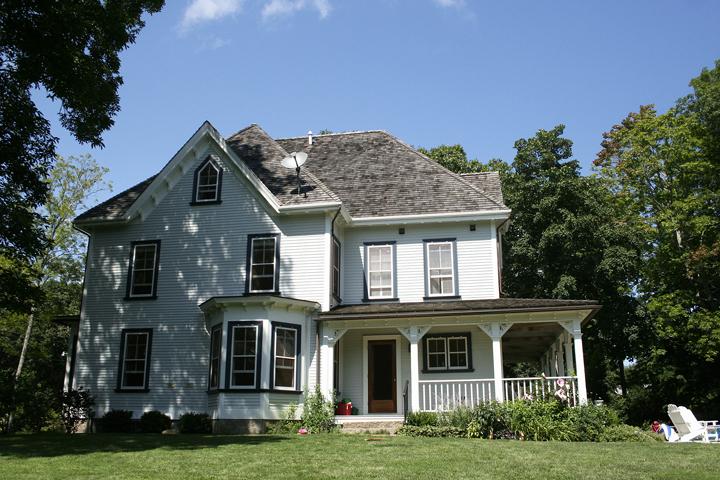The pitch is the first step in an often very long process of making a movie. It’s what gets the money people to open, or close, their wallets. Sometimes it’s a big concept. An asteroid is about to smash into the earth and only Bruce Willis can save us. Other times, wild comparisons are evoked to assure its marketability. It’s Terminator meets Harry Met Sally with a side of Toy Story. In any case, the idea is to go big and dramatic in just a few sentences because that’s all the time a writer has to convince a producer the project has merit.
And the initial pitch for the movie, The Kids Are All Right, this summer’s breakout critical hit: “Something about siblings. One boy. One girl.”
As Paul, one of the main characters in the film, played by Mark Ruffalo, would say, “Oh, shut the front door.”
But, it seems, to make a particular movie, one that ultimately does not lend itself to easy taglines — a lesbian couple whose teenage children decide to seek out their sperm donor father — it takes a particular producer. One who freely admits to being not particularly adept at knowing what qualities will make a hit.
“The most important element for me is the dedication and creativity of the director,” said Jeffrey Levy-Hinte, the producer. “There is this person and I can really believe in what they’re trying to say.”
That’s it?
“Well, yes, and then the market decides. Many projects I’ve taken on I just couldn’t get made. It all comes down to finding financing.”
The Kids Are All Right could have just as easily been one of those other projects. After all, the initial pitch was made back in 2002. But Mr. Levy-Hinte, whose credits as an editor and producer include Soul Power, When We Were Kings, Mysterious Skin, High Art and Laurel Canyon, to name just a few, believed in the vision of writer/director Lisa Cholodenko and her writing partner on this film, Stuart Blumberg. He also believed, without consciously thinking about it, in the journey of his own life in the movie business. The pitch for that: Young twenty-something guy dissatisfied with his day job in commercial real estate ends up watching a lot of movies to escape. Not a very promising story on the surface. But then there is the dedication and creativity of the young man in question.
“It [the movies] was my sanctuary, or where I’d flee to in order to get away from the job. And then I just got it in my head that this is what I wanted to do. I began talking to people to see what this community was about. I decided to go into editing. It was tangible. There was this space I could move into. This was the mid-nineties and there was this new technology where they were using computers to edit for the first time. It created a great demand and very little supply.”
Soon Mr. Levy-Hinte formed his own company, Antidote Films, which focused on postproduction services such as editing and sound. In 1996 he edited When We Were Kings, the very successful documentary about Muhammad Ali and George Foreman’s classic fight in Zaire. After this commercial and critical success, offers to edit more documentaries flooded his office. But nothing excited him. They all felt like a step backwards. So what to do next? How, in other words, to keep the story of this young man moving forward? How about one of the oldest story devices known. Enter the stranger.
“Actually, I had met Lisa [Cholodenko] earlier when I was editing, but I ran into her at the Barnes and Noble on Fifth Avenue and asked, ‘What are you up to?’ and she said, ‘Oh, I just wrote this script. Do you want to read it?’”
The script became the movie High Art, starring Ally Sheedy. It was Mr. Levy-Hinte’s first feature film production credit and it was Ms. Cholodenko’s first writing and directing credit. The two paired up again to make Laurel Canyon, a family drama starring Christian Bale and Frances McDormand, which came out in 2002. Almost immediately they began talking about their next movie together.
“The genius of Lisa,” Mr. Levy-Hinte said, “is she has this wonderful way of getting into the inside of her characters and really elaborating all these circumstances and scenarios they might be in.”
Initially, The Kids Are All Right was supposed to be a much darker film. “But then Lisa decided she didn’t want to go into the heart of darkness and instead tread on the periphery with some sunshine.”
Unfortunately, the making of the movie did not receive the same warm rays of light. The eight year odyssey was just beginning.
After about a year spent thinking about the story, Ms. Cholodenko teamed up with Stuart Blumberg and they created a treatment that had many of the elements the finished film has. This was a bigger movie, though, with a larger budget, which often invites a lot more headaches, mostly due to the precariousness of financing an independent movie. “People make grand gestures of what they intend to do,” said Mr. Levy-Hinte. “Then they get cold feet.”
In 2006, four years after the initial pitch, the stars began to align and the movie was about to be shot. This version stared Julianne Moore, Ewan McGregor and Robin Wright Penn. Then a creation of another sort intervened: Ms. Cholodenko became pregnant. But the show must go on. The actors had other projects to do and couldn’t wait around.
“So we scheduled the shoot for her second trimester, always knowing it was completely insane.”
But the financing fell apart just weeks before shooting was to begin. “It was all very typical, but we were incredibly upset.”
The team decided to fold up their tents for awhile. Three more years to be exact. During that time, Mr. Levy-Hinte worked on other films, even turning his attention back to documentaries.
“We also used the time as an opportunity to rethink the script and it became a much more focused script. We were really able to answer the essential questions. What is the structure of the story. Who are we going to follow. Each individual character’s arc.”
Annette Bening also came on board. She and Julianne Moore and the director began spending time with the story and inhabiting their characters’ lives.
“Lisa would talk to them [Annette and Julianne] eliciting their views and listening to the cadence of their voices, understanding what they were afraid of, what they desired as people, not just actors. Now the characters started to move in the direction of the people.”
And finally, just three weeks before shooting began in July of 2009, Mark Ruffalo signed on.
Did they know, while working on the movie, or even after it was made, that they had created something that in all likelihood will end in a trip to the Oscars next year?
“I was so focused on getting it made that it didn’t really occur to me that it could have this success. But then we’d have these screenings for small groups to talk about it, and I was like, wow, these people really like the movie.” And like it they did. The movie caused a bidding war at the Sundance Film Festival, eventually selling for five million dollars to Focus Features. It opened in theaters this summer and this week is still chugging along nicely at the box office, its course steered by a producer and creative team determined to make a film that meant something.
But what of that other story, the one about the young man who once escaped misery by watching movies only then to make producing movies his life’s work? Ironically, at this moment of his greatest success, commercially and, it could be argued, critically, he was in the process of leaving the industry. Leaving?
Looking back on his journey in the movie business, Mr. Levy-Hinte describes it this way. “First you get your foot run over by a roller skater. Then someone hits you on their bike. And then comes the car and then the bus and then one of those dump trucks that they use in strip-mining coal that go over you and then back up and go over you again.” Ouch.
So what next then? The story can’t end there. Well, how about a Vineyard story to refuel the soul.
Mr. Levy-Hinte first visited the Island in the early nineties but only briefly. Later, a friend who knew of his interest in wooden boats and craftsmen in particular told him about Nat Benjamin. “So I came out a couple of times to see Nat. I’d visit him and photograph his shop, searching for what the story could be. But I couldn’t find much in the way of a dramatic arc other than, will it float?”
Mr. Levy-Hinte started coming to the Island more frequently with his wife, Kristen Kusama, who had been vacationing on the Vineyard for more than 20 years. They rented each summer until they discovered that the old Humphrey’s house in West Tisbury was for sale. The bakery of yore, where the turkey gobbler sandwich started and donuts big as your head fueled many a bicycler headed up-Island.
“It was beautifully made, but rundown when we got it. But something there was crying out to be restored.” Another project to believe in.
The house restoration took almost three years. They enjoyed their first summer there in 2009, just after shooting was completed on The Kids Are All Right. Two projects down, and one still to discover.
“I had gotten wind that Nat had started to work on his own boat. That’s something that could be interesting,” Mr. Levy-Hinte thought. “That just might do it.” With the help of cinematographer Brian Dowley, he filmed the story of the making and launching of Charlotte. Now he is back where he started, in the editing room, searching for the through line of the story of Charlotte.
And of that other world, the one he was so intent on leaving and the film that has so many people talking? “What’s most important to me,” Mr. Levy-Hinte said, “is whether the film is meaningful and important to people and then they want other people to see it and it creates a following, a community around it. The means to that end, though, is you need some measure of success that allows you to go back and do more.” In other words, critical acclaim is nice, but to stay in the movie game, art needs to make money too.
Audiences can only hope that the success of this film inspires Mr. Levy-Hinte to go back and do more. After all, the story of so many other filmmakers, those still sitting in the dark, staring up at the screen, deciding whether to take their own leap of faith, is at stake here.
Jeffrey Levy-Hinte will take questions after a screening on Wednesday at 8 p.m. at Chilmark Community Center, part of the Martha’s Vineyard Film Festival.







Comments
Comment policy »